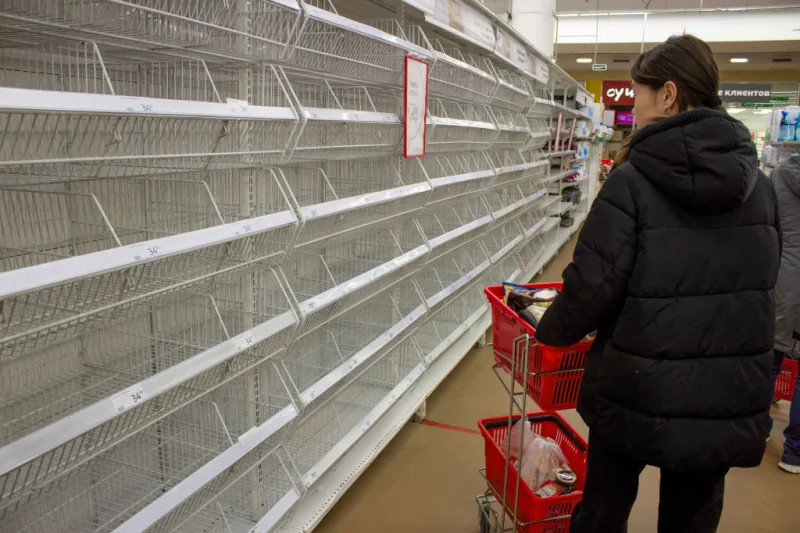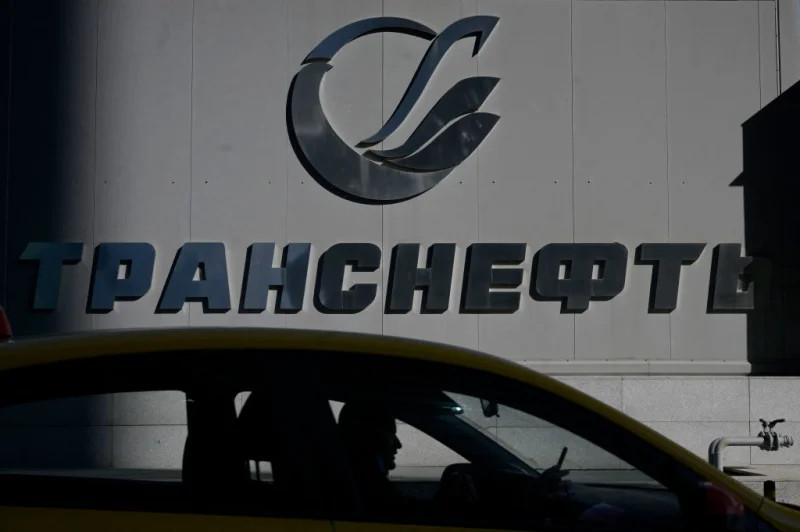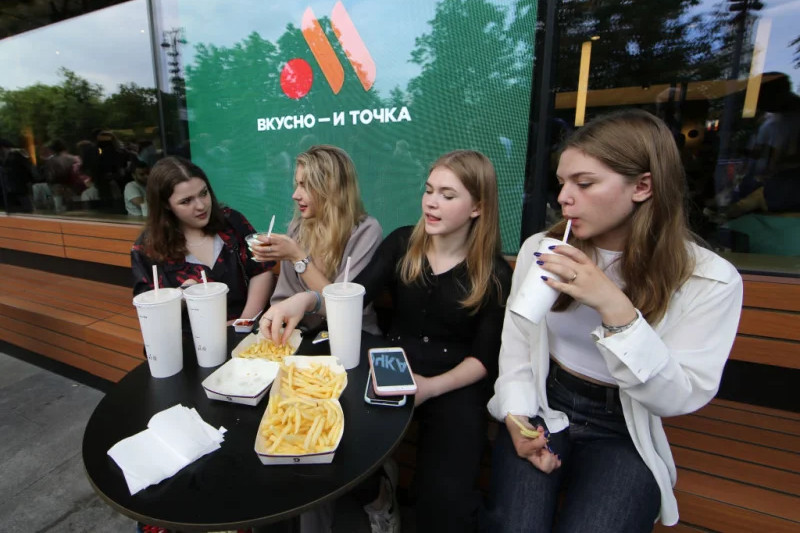
OVERVIEW
MANAGEMENT
PERFORMANCE
POSSIBILITIES
CAPITALS
ACTIVITIES
ACTORS
BURGESS

| |||||||||
| HOME | SN-BRIEFS |
SYSTEM OVERVIEW |
EFFECTIVE MANAGEMENT |
PROGRESS PERFORMANCE |
PROBLEMS POSSIBILITIES |
STATE CAPITALS |
FLOW ACTIVITIES |
FLOW ACTORS |
PETER BURGESS |
| SiteNav | SitNav (0) | SitNav (1) | SitNav (2) | SitNav (3) | SitNav (4) | SitNav (5) | SitNav (6) | SitNav (7) | SitNav (8) |
| Date: 2025-04-07 Page is: DBtxt001.php txt00023163 | |||||||||
|
RUSSIAN ECONOMY
DEEP DAMAGE Time: Russia Privately Warns of Deep and Prolonged Economic Damage 
A man walks past a closed Dior boutique in Moscow on June 8, 2022. (NATALIA KOLESNIKOVA/AFP via Getty Images) Original article: https://time.com/6211051/russia-sanctions-economy-impact-ukraine/ Peter Burgess COMMENTARY I am uncomfortable with the analysis and discussion of the impact of sanctions on the Russian economy, the Russian people and the Russian leadership. Sanctions are a very blunt instrument and take quite a long time to take effect. Mostly sanctions are rather weak because too many actors choose to avoid the sanctions if they have much impact on their own operations. So far, most companies seem to be respecting the sanction regime reasonably rigorously ... which is unusual. How long this will last is still an open question. The picture of empty shelves posted with this article comes as something of a surprise because it is dated March 23rd, just a month after the invasion of Ukraine and rather soon after the imposition of sanctions. In the 1980s, I worked in a number of communist countries with centrally planned economies, and supermarker shelves were more often empty than full, but I did not expect to see this in Moscow at this time in 2022. My understanding of global trade and the way the modern world has become interdependent suggests to me that Russia will be in deep economic trouble if the sanctions as they currently exist contrinue to hold. There is a high risk that both the United States and Europe will back off sanctions if the politics change more in the director of modern fascism ... hopefully voters will not let that happen, but potential misinformation campaigns can be very powerful. A big unknown is how long misinformation within Russia will allow Putin and his inner circle to stay in charge ,,, it could be a long time, and that will put a huge stress on both Ukraine and all the Western allies. So far the unalligned countries have remained unalligned with respect to Russia and the wealthy West ... but if the global economy takes a major downward turn this may change the pressure points in unexpected ways. I am watching China, North Korea and several countries in Africa for signs that they are going to take advantage of the current level of international turmoil. The more I learn ... the more I worry about the potential for things to spiral out of control. Peter Burgess |
|
Russia Privately Warns of Deep and Prolonged Economic Damage
SEPTEMBER 6, 2022 5:31 AM EDT Russia may face a longer and deeper recession as the impact of U.S. and European sanctions spreads, handicapping sectors that the country has relied on for years to power its economy, according to an internal report prepared for the government. The document, the result of months of work by officials and experts trying to assess the true impact of Russia’s economic isolation due to President Vladimir Putin’s invasion of Ukraine, paints a far more dire picture than officials usually do in their upbeat public pronouncements. Bloomberg viewed a copy of the report, drafted for a closed-door meeting of top officials on Aug. 30. People familiar with the deliberations confirmed its authenticity. Two of the three scenarios in the report show the contraction accelerating next year, with the economy returning to the prewar level only at the end of the decade or later. The “inertial” one sees the economy bottoming out next year 8.3% below the 2021 level, while the “stress” scenario puts the low in 2024 at 11.9% under last year’s level. All the scenarios see the pressure of sanctions intensifying, with more countries likely to join them. Europe’s sharp turn away from Russian oil and gas may also hit the Kremlin’s ability to supply its own market, the report said. Beyond the restrictions themselves, which cover about a quarter of imports and exports, the report details how Russia now faces a “blockade” that “has affected practically all forms of transport,” further cutting off the country’s economy. Technological and financial curbs add to the pressure. The report estimates as many as 200,000 IT specialists may leave the country by 2025, the first official forecast of the widening brain drain. Publicly, officials say the hit from sanctions has been less than feared, with the contraction possibly less than 3% this year and even less in 2023. Outside economists have also adjusted the outlooks for this year, backing off initial forecasts of a deep recession as the economy has held up better than expected. 
A woman looks at empty shelves in a supermarket in Moscow on March 23, 2022. Vlad Karkov/SOPA Images/LightRocket via Getty Images A fall in Russian exports The document calls for a raft of measures to support the economy and further ease the impact of the restrictions in order to get the economy recovering to pre-war levels in 2024 and growing steadily after that. But the steps include many of the same measures to stimulate investment that the government has touted over the last decade, when growth largely stagnated even without sanctions. Asked about the Bloomberg report early Tuesday in Vladivostok, Economy Minister Maxim Reshetnikov called the forecasts “analytical estimates that we used to calculate what would happen if we don’t resist, don’t do anything,” according to Tass. Over the next year or two, the report warns of “reduced production volumes in a range of export-oriented sectors,” from oil and gas to metals, chemicals and wood products. While some rebound is possible later, “these sectors will cease to be the drivers of the economy.” A full cutoff of gas to Europe, Russia’s main export market, could cost as much as 400 billion rubles ($6.6 billion) a year in lost tax revenues, according to the report. It won’t be possible to fully compensate the lost sales with new export markets even in the medium term. 
The logo of Russia's oil pipeline giant Transneft is pictured in Moscow on March 15, 2022. AFP via Getty Images As a result, output will have to be reduced, threatening Kremlin goals for expanding domestic gas supplies, the report said. The lack of technology needed for liquefied natural gas plants is “critical” and may hamper efforts to build new ones. Europe’s plans to stop importing Russian oil products — about 55% of exports went there last year — could trigger sharp cuts in production leaving the domestic market short of fuel, as well. Metals producers are losing $5.7 billion a year from the restrictions, the report said. If the world economy slips into recession, the report warns, Russia could see exports cut further as it becomes the “swing supplier” on global markets, with demand for its products disappearing first. That could trigger a plunge in the ruble and a spike in inflation. On the import side, “the main short-term risk is the suspension of production due to lack of imported raw materials and components.” Over the longer term, the inability to repair imported equipment could permanently limit growth, the report said. People visit a newly opened fast food restaurant in a former McDonald's outlet in Pushkinskaya Square, on June 12, 2022 in Moscow, Russia. The first of the former McDonald's restaurants has reopened under a new brand called 
People visit a newly opened fast food restaurant in a former McDonald's outlet in Pushkinskaya Square, on June 12, 2022 in Moscow, Russia. The first of the former McDonald's restaurants has reopened under a new brand called 'Vkusno i tochka' ('Tasty and point') in Moscow, after the corporation sold its branches in Russia to a local businessman following sanctions after Russia invaded Ukraine. Contributor/Getty Images Critical Imports run out “There are simply no alternative suppliers for some critical imports,” it said. Even in the farm sector, where the Kremlin has touted its efforts at replacing foreign supplies, dependence on key inputs could force Russians to reduce their food consumption as supplies dwindle, according to the report. Restrictions on access to western technology may push Russia a generation or two behind current standards as it’s forced to rely on less advanced alternatives from China and Southeast Asia. The report warns that sanctions will also force the government to revise a range of the development targets that Putin had set before the war, including those for boosting population growth and life expectancy. On a sectoral basis, the report details the breadth of the hit from sanctions:
MORE MUST-READ STORIES FROM TIME
WORLD Queen Elizabeth II's Health Causes Doctors Concern WORLD COVID Rules Are Hindering Earthquake Rescue Work in China HEALTH Why Experts Are Worried About 'Fluronavirus' Season © 2022 TIME USA, LLC. All Rights Reserved. Use of this site constitutes acceptance of our Terms of Service, Privacy Policy (Your California Privacy Rights) and Do Not Sell My Personal Information. TIME may receive compensation for some links to products and services on this website. Offers may be subject to change without notice. |
|
|
| The text being discussed is available at https://time.com/6211051/russia-sanctions-economy-impact-ukraine/ and |
|
SITE COUNT< Blog Counters Reset to zero January 20, 2015 | TrueValueMetrics (TVM) is an Open Source / Open Knowledge initiative. It has been funded by family and friends. TVM is a 'big idea' that has the potential to be a game changer. The goal is for it to remain an open access initiative. |
| WE WANT TO MAINTAIN AN OPEN KNOWLEDGE MODEL | A MODEST DONATION WILL HELP MAKE THAT HAPPEN | |
|
The information on this website may only be used for socio-enviro-economic performance analysis, education and limited low profit purposes
Copyright © 2005-2021 Peter Burgess. All rights reserved. Last modified 04/08/2025 01:43:45 | ||